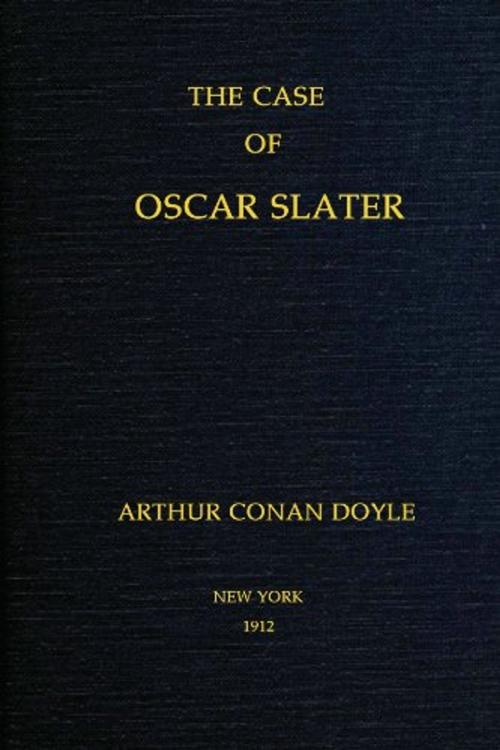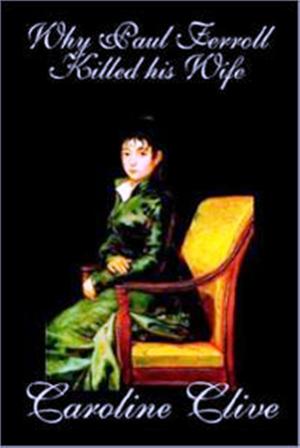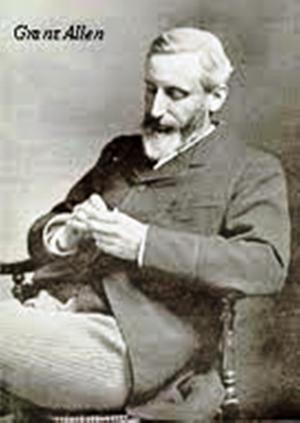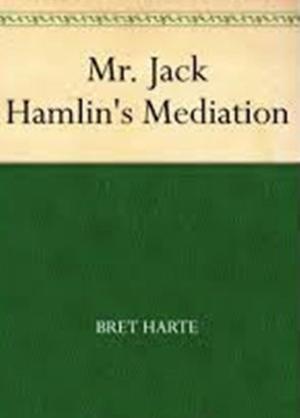| Author: | Arthur Conan Doyle | ISBN: | 1230000156286 |
| Publisher: | WDS Publishing | Publication: | July 31, 2013 |
| Imprint: | Language: | English |
| Author: | Arthur Conan Doyle |
| ISBN: | 1230000156286 |
| Publisher: | WDS Publishing |
| Publication: | July 31, 2013 |
| Imprint: | |
| Language: | English |
IT is impossible to read and weigh the facts in connection with the conviction of Oscar Slater in May, 1909, at the High Court in Edinburgh, without feeling deeply dissatisfied with the proceedings, and morally certain that justice was not done. Under the circumstances of Scotch law I am not clear how far any remedy exists, but it will, in my opinion, be a serious scandal if the man be allowed upon such evidence to spend his life in a convict prison. The verdict which led to his condemnation to death, was given by a jury of fifteen, who voted; Nine for "Guilty," five for "Non-proven," and one for "Not Guilty." Under English law, this division of opinion would naturally have given cause for a new trial. In Scotland the man was condemned to death, he was only reprieved two days before his execution, and he is now working out a life sentence in Peterhead convict establishment. How far the verdict was a just one, the reader may judge for himself when he has perused a connected story of the case. There lived in Glasgow in the year 1908, an old maiden lady named Miss Marion Gilchrist. She had lived for thirty years in the one flat, which was on the first floor in 15, Queen's Terrace. The flat above hers was vacant, and the only immediate neighbours were a family named Adams, living on the ground floor below, their house having a separate door which was close alongside the flat entrance. The old lady had one servant, named Helen Lambie, who was a girl twenty-one years of age. This girl had been with Miss Gilchrist for three or four years. By all accounts Miss Gilchrist was a most estimable person, leading a quiet and uneventful life. She was comfortably off, and she had one singular characteristic for a lady of her age and surroundings, in that she had made a collection of jewelry of considerable value. These jewels, which took the form of brooches, rings, pendants, etc., were bought at different times, extending over a considerable number of years, from a reputable jeweller. I lay stress upon the fact, as some wild rumour was circulated at the time that the old lady might herself be a criminal receiver. Such an idea could not be entertained. She seldom wore her jewelry save in single pieces, and as her life was a retired one, it is difficult to see how anyone outside a very small circle could have known of her hoard. The value of this treasure was about three thousand pounds. It was a fearful joy which she snatched from its possession, for she more than once expressed apprehension that she might be attacked and robbed. Her fears had the practical result that she attached two patent locks to her front door, and that she arranged with the Adams family underneath that in case of alarm she would signal to them by knocking upon the floor.
IT is impossible to read and weigh the facts in connection with the conviction of Oscar Slater in May, 1909, at the High Court in Edinburgh, without feeling deeply dissatisfied with the proceedings, and morally certain that justice was not done. Under the circumstances of Scotch law I am not clear how far any remedy exists, but it will, in my opinion, be a serious scandal if the man be allowed upon such evidence to spend his life in a convict prison. The verdict which led to his condemnation to death, was given by a jury of fifteen, who voted; Nine for "Guilty," five for "Non-proven," and one for "Not Guilty." Under English law, this division of opinion would naturally have given cause for a new trial. In Scotland the man was condemned to death, he was only reprieved two days before his execution, and he is now working out a life sentence in Peterhead convict establishment. How far the verdict was a just one, the reader may judge for himself when he has perused a connected story of the case. There lived in Glasgow in the year 1908, an old maiden lady named Miss Marion Gilchrist. She had lived for thirty years in the one flat, which was on the first floor in 15, Queen's Terrace. The flat above hers was vacant, and the only immediate neighbours were a family named Adams, living on the ground floor below, their house having a separate door which was close alongside the flat entrance. The old lady had one servant, named Helen Lambie, who was a girl twenty-one years of age. This girl had been with Miss Gilchrist for three or four years. By all accounts Miss Gilchrist was a most estimable person, leading a quiet and uneventful life. She was comfortably off, and she had one singular characteristic for a lady of her age and surroundings, in that she had made a collection of jewelry of considerable value. These jewels, which took the form of brooches, rings, pendants, etc., were bought at different times, extending over a considerable number of years, from a reputable jeweller. I lay stress upon the fact, as some wild rumour was circulated at the time that the old lady might herself be a criminal receiver. Such an idea could not be entertained. She seldom wore her jewelry save in single pieces, and as her life was a retired one, it is difficult to see how anyone outside a very small circle could have known of her hoard. The value of this treasure was about three thousand pounds. It was a fearful joy which she snatched from its possession, for she more than once expressed apprehension that she might be attacked and robbed. Her fears had the practical result that she attached two patent locks to her front door, and that she arranged with the Adams family underneath that in case of alarm she would signal to them by knocking upon the floor.















